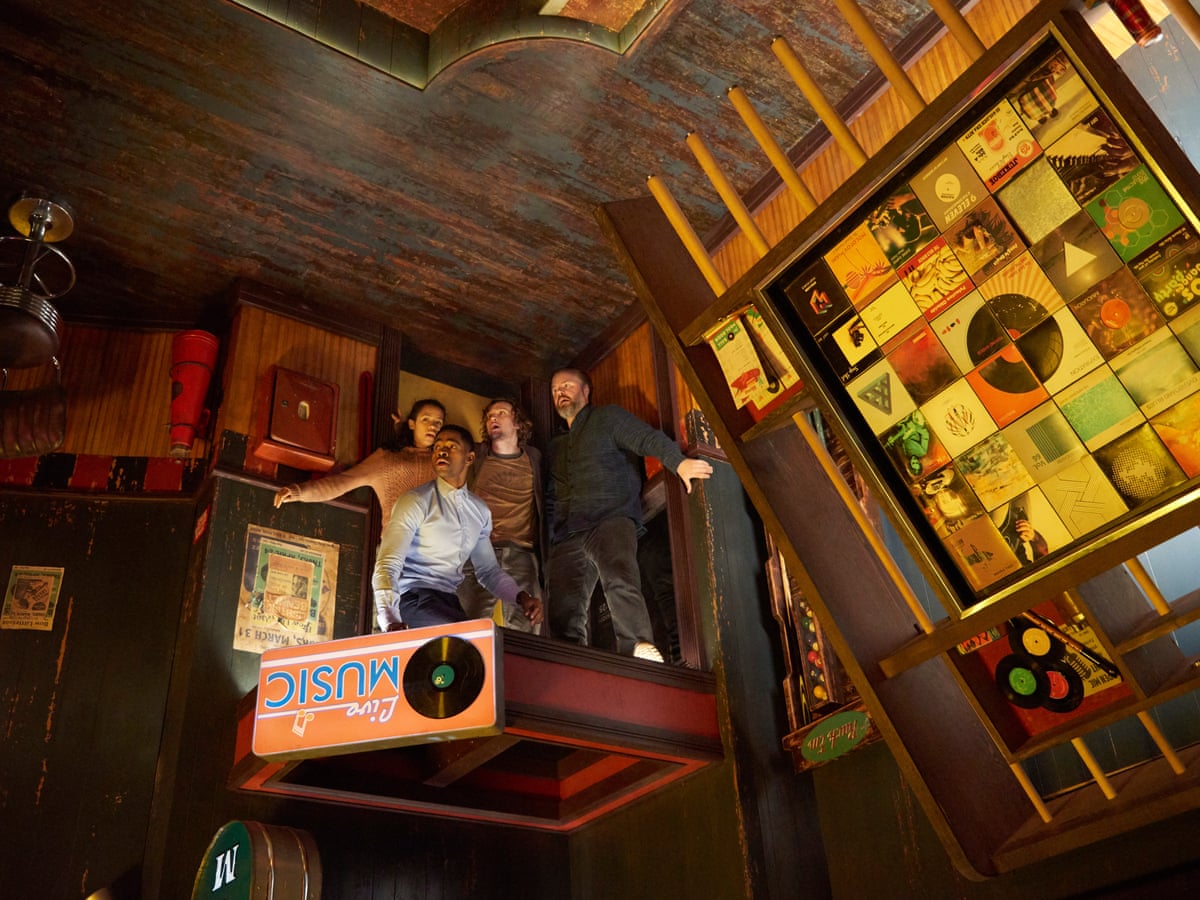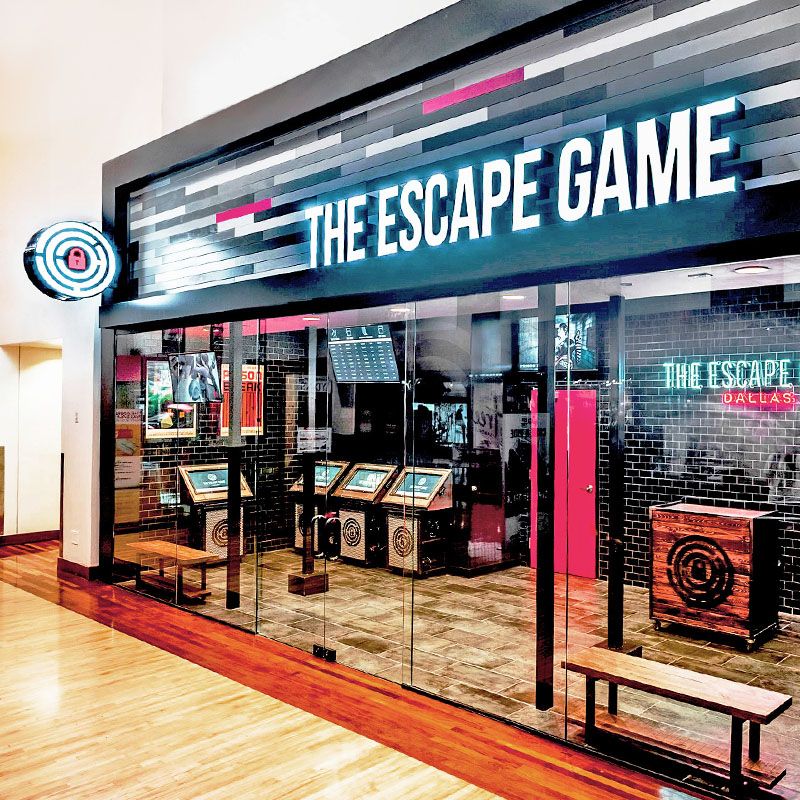Best Escape Room Experience-- Exciting Games and Puzzles for Teams
Best Escape Room Experience-- Exciting Games and Puzzles for Teams
Blog Article
Group Approaches: Just How to Team up Successfully in an Escape Space
Navigating the intricacies of an escape room necessitates even more than plain excitement; it calls for a well-coordinated strategy based in clear interaction, calculated function projects, and adept time monitoring. Groups should actively listen per participant's insights, assign duties that line up with individual toughness, and keep routine check-ins to guarantee emphasis and stop redundancy. By promoting an environment that values communication and versatility, teams can significantly enhance their effectiveness and success rates. The subtleties of these techniques can transform the experience, yet exactly how specifically can they be applied to maximize the capacity for success?
Establish Clear Interaction

To help with clear interaction, it is important to mark a main point of get in touch with for information dissemination. Short, concentrated updates from each team member can maintain the team informed without overwhelming them with info.

Designate Functions Strategically
While clear communication establishes the structure for efficient team effort, appointing roles tactically guarantees that each employee's staminas are made use of properly. In a retreat room situation, the time-sensitive and intricate nature of difficulties necessitates an efficient method to job delegation. By determining and leveraging specific proficiencies, groups can enhance their analytic capabilities and boost general efficiency.
Someone with a keen eye for detail may succeed in locating hidden objects, while a logical thinker could be better fit to fixing problems. This duty often requires strong organizational and interpersonal abilities.
2nd, ensure that roles are versatile and adaptable. As new challenges emerge, the team must have the ability to pivot, reapportioning jobs as required. This adaptability helps maintain energy and protects against traffic jams that can take place because of stiff duty tasks.
Eventually, a calculated technique to function project not only maximizes the strengths of each team member yet additionally promotes a cohesive environment, driving the group in the direction of a successful retreat.
Make Use Of Diverse Abilities
Identifying and taking advantage of the diverse abilities within your team can significantly boost your efficiency in a getaway area. Each employee brings one-of-a-kind staminas to the table, and effectively more information leveraging these capacities can speed up problem-solving and boost overall effectiveness. As an example, an employee with strong logical skills could stand out at figuring out intricate codes or patterns, while another with eager empirical capabilities might quickly identify covert ideas weblink that others may forget.
Effective interaction is key to using these diverse skills. Motivate team participants to articulate their understandings and ideas immediately, guaranteeing that all possible services are thought about. This inclusive method cultivates a dynamic environment where creative thinking and critical thinking can thrive. Additionally, assigning tasks that align with each member's strengths can avoid bottlenecks and make sure that progress is constant.
Additionally, diversity in skills frequently translates to variety in assuming designs, which is indispensable in a getaway space setting. While some obstacles might need logical reasoning and accuracy, others may take advantage of imaginative and side reasoning. By identifying and leveraging this diversity, teams can resolve a more comprehensive series of difficulties better, therefore boosting their chances of an effective getaway.
Manage Time Efficiently

First, allocate initial mins for a fast study of the space. Recognize noticeable challenges and divide tasks based on staff member' staminas, making sure that nobody is still. Set interior time checkpoints to examine progress occasionally; for instance, aim to have half the puzzles addressed by the mid-point of the video game. This technique can assist keep the team focused and prevent time from slipping away undetected.
In addition, prevent one-track mind. If a problem is taking too long, revolve group participants or go on to an additional obstacle, returning later on with fresh perspectives. Interaction is vital-- maintain everyone updated on addressed challenges and staying tasks to stay clear of repetitive efforts.
Last but not least, make use of any kind of hints or ideas sparingly however tactically - best escape room. Knowing when to ask for assistance can conserve beneficial time. By sticking to these time management principles, teams can significantly enhance their chances of an effective and satisfying escape area experience
Debrief and Mirror
Representation is an important element of group growth and enhancement in the context of retreat spaces. As soon as the challenge is completed, whether effectively or otherwise, it is critical for the group to involve in an organized debriefing session. This procedure permits staff member to analyze their efficiency, determine toughness, and determine areas for improvement.
Begin the debrief by reviewing what worked out. Highlight details circumstances of reliable communication, problem-solving, and cooperation. Identifying these positive habits strengthens them and motivates their repetition in future challenges.
Talk about minutes of confusion, miscommunication, or ineffective approaches. Encourage an open and constructive discussion where group members can share their viewpoints without anxiety of objection.
Final Thought
In conclusion, successful cooperation in a retreat space is predicated upon clear interaction, calculated role jobs, the efficient application of varied skills, and competent time administration. By developing a cohesive and flexible group atmosphere, the chance of effectively solving problems and attaining the goal of getting away the space is significantly improved.
Report this page